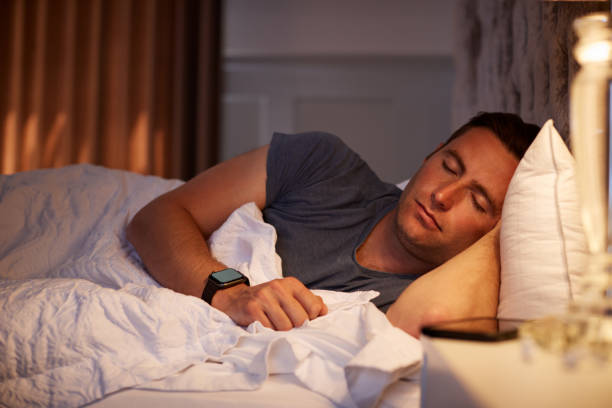As the seasons change, particularly when autumn sets in, many individuals experience a shift in their daily routines. The days become shorter, and evenings arrive earlier, which can disrupt established patterns of rest and wakefulness. This is particularly important for those who struggle with sleep issues or anxiety. Understanding how to adapt to these changes is crucial for maintaining good sleep hygiene and overall well-being. Sleep experts in the UK have been emphasizing the importance of resetting routines to align with the natural rhythms of light and darkness.
To delve deeper into this topic, many resources provide valuable insights into sleep science and practical tips for improving sleep quality. By consulting with sleep experts, individuals can learn about the impact of light exposure, the importance of a consistent schedule, and effective relaxation techniques.
Adapting your routine for the darker evenings can significantly enhance your sleep quality, making it easier to fall asleep and wake up refreshed.
In this blog post, we will explore various strategies recommended by sleep experts in the UK for resetting your routine, particularly as the evenings grow darker.
Understanding the Impact of Darkness on Sleep
The transition to darker evenings can significantly affect our circadian rhythms, which are the body’s internal clocks that regulate sleep-wake cycles. Research suggests that exposure to natural light during the day helps to synchronize these rhythms, promoting alertness and enhancing mood. However, as daylight fades, the body starts to produce melatonin, a hormone that signals it’s time to wind down.
When darkness arrives earlier than expected, it can confuse our internal clocks, leading to difficulties in falling asleep. Sleep experts recommend embracing this natural cue by adjusting your evening routine to facilitate a smoother transition into sleep. This may include dimming lights in your home and minimizing exposure to screens, which emit blue light that can disrupt melatonin production.
Establishing a Consistent Sleep Schedule
One of the most effective ways to reset your routine during darker evenings is to establish a consistent sleep schedule. Going to bed and waking up at the same time every day helps regulate your body’s internal clock, making it easier to fall asleep and stay asleep. Sleep experts advocate for a gradual adjustment to your schedule, especially if you usually go to bed later.
Aiming to shift your bedtime earlier by 15 to 30 minutes each night can help your body acclimate to the change without feeling rushed. This consistency not only improves sleep quality but can also enhance overall health and well-being. By reinforcing your body’s natural rhythms, you are more likely to feel energized during the day and calm during the night.
Creating a Relaxing Bedtime Routine
A calming bedtime routine can signal to your body that it’s time to wind down. Sleep experts often recommend incorporating activities that promote relaxation into your evening rituals. This could include reading a book, practicing mindfulness or meditation, or taking a warm bath. The key is to engage in activities that help you disconnect from the stresses of the day and prepare your mind for sleep.
Furthermore, reducing stimulation from electronic devices during the hour before bed can significantly enhance the quality of your sleep. Instead of scrolling through your phone or watching television, consider engaging in low-tech activities that promote relaxation and calmness.
Optimizing Your Sleep Environment
Your sleep environment plays a crucial role in the quality of your rest. As darkness falls earlier, it’s essential to create a bedroom atmosphere that fosters sleep. Sleep experts recommend making your bedroom a comfortable, quiet, and cool sanctuary.
Invest in blackout curtains to block out any unwanted light and consider using a white noise machine or earplugs if noise disturbances are an issue. Additionally, keeping the room at a cooler temperature can facilitate better sleep, as the body naturally cools down during the night. Ensure that your bedding is cozy and conducive to rest, as this will enhance your overall sleep experience.
Mindful Eating and Drinking Before Bed
What you consume in the hours leading up to bedtime can significantly influence your sleep quality. Sleep experts in the UK often advise against heavy meals, caffeine, and alcohol close to bedtime. These substances can disrupt sleep patterns and lead to unrestful nights. Instead, focus on lighter snacks that promote sleep, such as bananas, almonds, or herbal teas.
Additionally, maintaining hydration throughout the day is important, but try to limit fluid intake in the hour before bed to reduce the likelihood of nighttime awakenings. By being mindful of your eating and drinking habits, you can create a more conducive environment for restful sleep.
Incorporating Physical Activity into Your Day
Regular physical activity is another key component of a successful sleep routine. Engaging in exercise during the day can help reduce anxiety and promote better sleep at night. Sleep experts recommend incorporating at least 30 minutes of moderate exercise into your daily routine, ideally earlier in the day. This helps to regulate your body’s natural sleep-wake cycle and can make it easier to fall asleep when the day comes to a close. However, it’s important to avoid vigorous exercise close to bedtime, as this can have the opposite effect and interfere with your ability to wind down.
Utilizing Light Therapy
For some individuals, especially those affected by Seasonal Affective Disorder (SAD), light therapy can be an effective tool for managing the impact of darker evenings. Sleep experts suggest using a light therapy box that mimics natural sunlight exposure. This can help to regulate circadian rhythms and improve mood and energy levels during the shorter days of autumn and winter.
Ideally, light therapy should be used for about 20 to 30 minutes in the morning, as this can help to set your internal clock for the day ahead. By incorporating light therapy into your morning routine, you can enhance your overall well-being and make the transition into darker evenings much smoother.
Staying Mindful of Mental Health
As the days grow shorter, some individuals may experience feelings of sadness or anxiety, which can further disrupt sleep. It’s vital to remain mindful of your mental health during this transition. Sleep experts emphasize the importance of seeking support when needed, whether through therapy, support groups, or simply confiding in friends and family.
Practicing self-care techniques, such as journaling or engaging in creative pursuits, can also help alleviate stress. By prioritizing your mental health, you create a solid foundation for better sleep and a more balanced routine.
FAQs
How can I reset my sleep routine for darker evenings?
To reset your sleep routine, establish a consistent sleep schedule, create a relaxing bedtime routine, and optimize your sleep environment.
What activities promote relaxation before bed?
Activities like reading, meditation, and taking a warm bath can help you unwind and prepare for a restful night’s sleep.
Should I avoid screens before bed?
Yes, minimizing screen time before bed is advisable, as blue light can interfere with melatonin production, making it harder to fall asleep.
How does diet affect sleep quality?
Heavy meals, caffeine, and alcohol close to bedtime can disrupt sleep. Opt for lighter snacks and stay hydrated throughout the day.
What is light therapy, and how can it help?
Light therapy involves exposure to artificial light that mimics sunlight, which can help regulate circadian rhythms and improve mood during darker months.
Conclusion
Resetting your routine for darker evenings is essential for maintaining good sleep hygiene and overall well-being. By following the recommendations of sleep experts in the UK, you can effectively adapt to the changing seasons. This includes establishing a consistent sleep schedule, creating a relaxing bedtime routine, and optimizing your sleep environment. Additionally, being mindful of your eating habits, incorporating physical activity, and utilizing light therapy can further enhance your sleep quality.
As the evenings grow darker, taking proactive steps to adjust your routine will not only improve your sleep but also contribute to a healthier and more balanced lifestyle. Embrace the change and prioritize your sleep for a brighter tomorrow.

